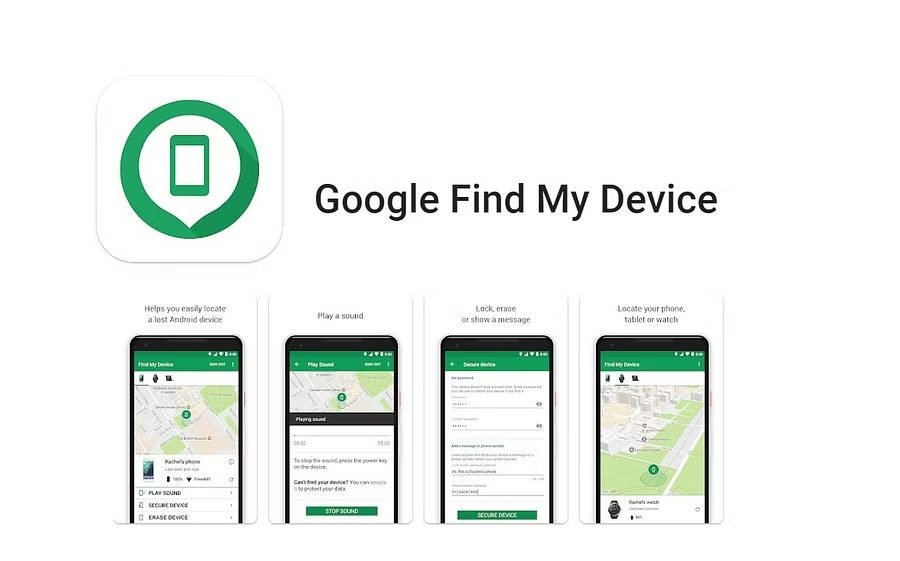Misplacing your phone can be a stressful experience. Whether it’s buried under the couch cushions or lost in the back of a taxi, those frantic moments searching for your precious device can disrupt your entire day. Thankfully, Google’s Find My Device feature offers a powerful solution, leveraging technology to help you locate your lost Android phone or tablet quickly and easily.
This blog will delve into the exciting revamp of Find My Device, exploring its enhanced functionality, robust security features, and seamless user experience. We’ll equip you with the knowledge to utilize Find My Device effectively, ensuring peace of mind knowing your belongings are always within reach.

Unveiling the New Find My Device: A Network of Billions for Enhanced Tracking
Gone are the days of relying solely on GPS for locating lost devices. Google has taken Find My Device to the next level by harnessing the power of a vast network. With over a billion Android devices now contributing, the Find My Device network offers a significant leap in locating lost items. This network functionality allows you to find your device even when it’s offline, a feature previously unavailable.
Imagine this scenario: you leave your phone at a friend’s house, and the battery dies before you can retrieve it. Traditionally, you’d be out of luck until you could recharge the phone. However, with the new Find My Device, you can leverage the network to pinpoint its location on a map within the app, even if it’s powered off. This extends to Pixel 8 and 8 Pro users, offering an additional layer of security for their flagship devices.
Beyond Phones: Find My Device Expands to Everyday Items
The power of Find My Device isn’t limited to smartphones and tablets. Google is introducing compatibility with Bluetooth tracker tags, allowing you to locate everyday items like keys, wallets, or luggage with ease. Partnering with companies like Chipolo and Pebblebee, these Bluetooth tags seamlessly integrate with the Find My Device app, offering a convenient solution for absent-minded individuals.
Let’s say you’re notorious for losing your keys. Simply attach a compatible Bluetooth tag to your keychain, and you can use the Find My Device app to locate them with a tap. This functionality extends to other frequently misplaced items, providing peace of mind and saving you valuable time searching for lost belongings. The launch of Bluetooth tag compatibility is expected in May, offering an exciting new dimension to Find My Device.
Locating Lost Items Made Easy: User-Friendly Features for Everyone
The revamped Find My Device prioritizes user experience with a suite of intuitive features. The “Find nearby” button is a valuable tool for situations where you suspect your lost device is close by. This feature utilizes Bluetooth to pinpoint the device’s location within a short distance, guiding you to its whereabouts. With the launch of Bluetooth tags, this functionality will extend to finding everyday items as well.
For users with Nest devices at home, Find My Device offers an additional layer of convenience. The app now integrates with Nest devices, allowing you to see if your lost device is somewhere within your home’s vicinity. This eliminates the need for a frantic room-by-room search, saving you precious time and frustration.
Another user-friendly feature is the ability to share accessories with friends and family. Through the Find My Device app, you can easily share the location of items like house keys or TV remotes with designated individuals. This collaborative tracking system ensures everyone has access to the location information, preventing situations where misplaced accessories create inconvenience for the entire household.
Security and Privacy: Keeping Your Information Safe
Security and privacy are paramount concerns when it comes to location tracking. Google understands this, and the Find My Device feature is built with robust safeguards in place. Here’s a breakdown of the key security and privacy features:
- End-to-End Encryption: Location data is encrypted, ensuring only the owner and authorized individuals can view it. Google itself cannot access this data, protecting your privacy.
- Crowdsourced Location Reports: Reports to the Find My Device network prioritize user privacy. Only the location and timestamp of the lost item are shared with the Bluetooth tag owner, not the identity of the device owner. This ensures you remain anonymous while leveraging the network’s capabilities.
- Minimized Network Data: Encrypted location data is frequently overwritten, minimizing the amount of data stored on the network. Additionally, reports are discarded if a lost item is detected by nearby devices, further reducing data retention.
Putting Safety First: Additional Security Measures
The Find My Device feature goes beyond data security to prioritize user safety:
- Aggregation by Default: Multiple nearby Android devices must detect a tag before its location is reported, making it difficult for someone to track you without your knowledge.
- At-Home Protection: Android devices in close proximity to your home location are excluded

How to Deactivate Your Paytm FASTag and Get a New One
With the increasing number of vehicles on the road, toll booths can become a real bottleneck for any road trip. FASTag offers a convenient solution,

Why Sensex and Nifty Are Hitting Record Highs
The Indian stock market has been on a tear lately, with both the Sensex and Nifty reaching new record highs on April 8, 2024. This
